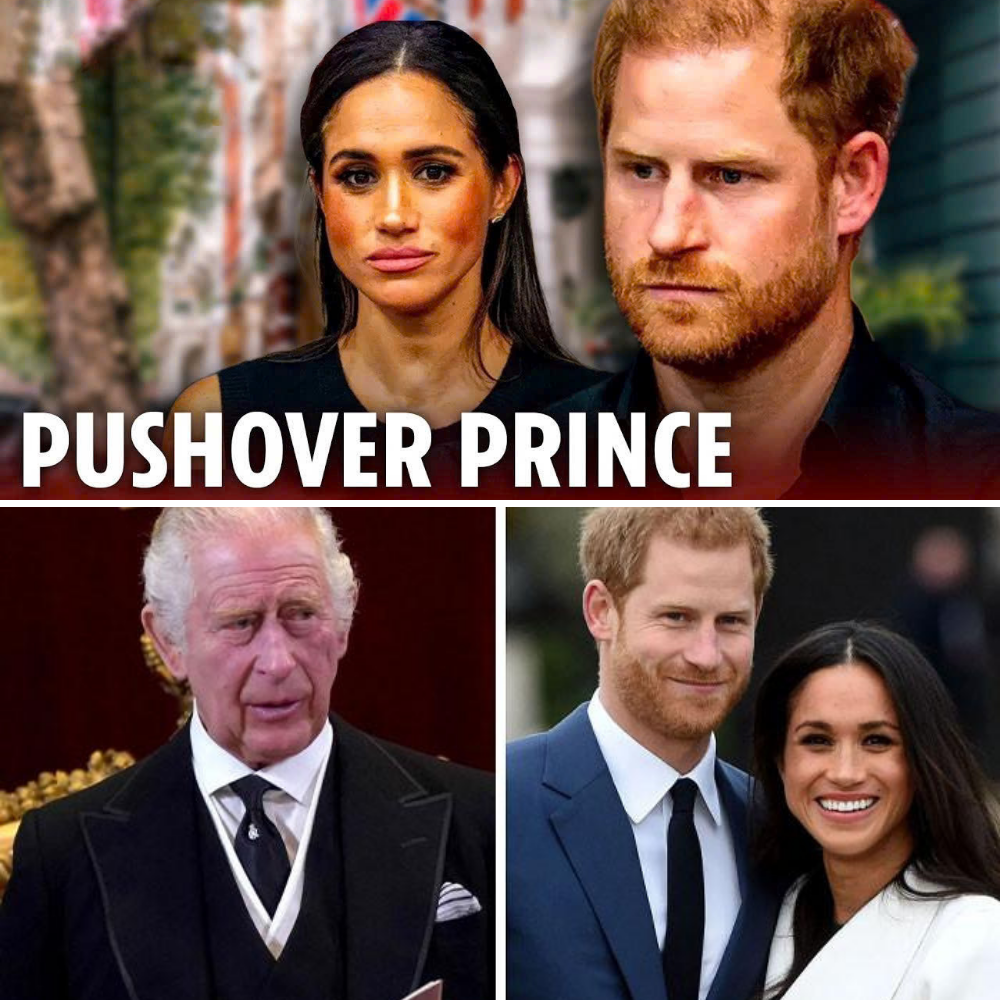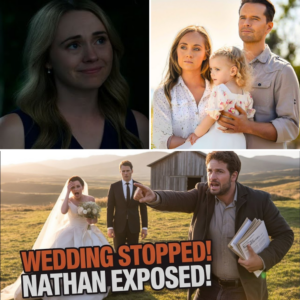
In the ever-unfolding drama of the British monarchy, fresh claims have surfaced that Prince Harry is utterly “whipped” by his wife, Meghan Markle—suggesting not only a lopsided power dynamic in their relationship but also an ever-widening chasm between Harry and his royal roots. According to royal commentator Esther Krakue, even King Charles himself is allegedly aware of the prince’s submissive posture within his marriage. But behind the headlines, what does this really mean for the future of the Duke and Duchess of Sussex—and the Royal Family as a whole?
During a recent appearance on The Royal Exclusive show, Krakue painted a vivid portrait of a man who once wore military medals and royal titles now bowing to the strong will of a Hollywood actress turned duchess. Krakue did not mince words: “Harry is totally whipped,” she claimed, suggesting that the prince’s every move—public statements, appearances, and even personal decisions—are tightly choreographed by Meghan.
But more incendiary than the claim of Harry’s subservience is Krakue’s assertion that Meghan Markle, the woman who once captivated the world as the fresh new face of royalty, now bristles at her diminished status within the royal hierarchy. Once dubbed the “People’s Princess 2.0” by tabloids eager for a new fairy tale, Markle’s post-Megxit reality is far from the enchanted castle.
A Royal Romance Turned Rogue
When Prince Harry and Meghan Markle first went public with their relationship in 2016, it seemed the Royal Family had found a new modern couple to breathe life into the monarchy. Young, photogenic, and diverse, they were hailed as a breath of fresh air. But the fairy tale began to unravel quickly.
In 2020, the couple made global headlines with their bombshell decision to step back from senior royal duties, citing mental health, media intrusion, and a desire for independence. Dubbed “Megxit,” the move drew comparisons to Edward VIII’s abdication and sent shockwaves through Buckingham Palace.
While their departure was sold as a step toward privacy and autonomy, critics have long argued that Meghan’s influence was the true driving force. Now, with Krakue’s recent remarks, that narrative is finding new momentum.
The “Whipped” Prince?
The term “whipped” is as provocative as it is controversial. It suggests not just deference or love, but a total surrender of independence. In royal circles, where stoicism, duty, and tradition are paramount, such a label is tantamount to sacrilege.
According to Krakue, Prince Harry no longer exerts independent judgment, particularly when it comes to matters involving the monarchy or the public. Instead, his decisions are said to reflect Meghan’s worldview—one often at odds with the royal institution.
Body language experts have frequently pointed to Harry’s posture in public appearances—often standing behind Meghan, deferring to her in interviews, or letting her take the lead in conversations. While some interpret this as modern partnership, others see it as imbalance.
But perhaps more telling are his own admissions in various interviews, including his controversial memoir Spare. From discussing therapy sessions to painting vivid tales of familial estrangement, Harry’s public narrative often mirrors grievances long associated with Meghan.
Meghan’s Diminished Royal Standing
Krakue’s second claim—that Meghan resents her diminished royal status—is equally explosive. Once at the center of royal engagements and global headlines, Meghan now finds herself in a liminal space: not fully royal, not fully private.
While she and Harry continue to appear in public—whether attending award shows or launching philanthropic ventures—they do so without the backing or status of “working royals.” No HRH title usage, no taxpayer-funded security, and certainly no balcony appearances during Trooping the Colour.
Sources close to the palace suggest Meghan’s desire for royal stature hasn’t faded with time. She reportedly hoped that her celebrity would continue to grant her influence and prestige, even outside royal circles. Yet, the cold reality of the Firm is that once you step away, you don’t get to step back in on your own terms.
If resentment does exist, it may stem from watching others—like Princess Catherine—continue to receive the spotlight, the respect, and the legacy she may have imagined for herself.
What Does King Charles Think?
Perhaps the most intriguing part of Krakue’s commentary is the claim that King Charles himself is aware of Harry’s “whipped” status. If true, it raises serious questions about the state of the father-son relationship.
Since ascending the throne, Charles has made efforts to maintain unity within the fractured royal family. But his gestures toward Harry and Meghan have been limited—Christmas invitations declined, public statements measured, and reconciliation attempts, if any, kept firmly behind closed doors.
Insiders suggest that while Charles may love his son, he views his decisions—especially his perceived submissiveness to Meghan—as a betrayal of royal duty. The King’s emphasis on “slimmed-down monarchy” may be less about cost-cutting and more about preserving what he sees as the institution’s dignity.
A Marriage Under Scrutiny
It’s important to note that Harry and Meghan’s marriage is still going strong—at least publicly. They are often seen hand-in-hand, share parenting duties, and speak fondly of each other in interviews. But royal watchers and critics alike question whether the bond is built on equality—or dominance.
Is Harry content with his role, or is he quietly harboring regrets? Does Meghan see him as an equal partner, or merely a vessel for her own ambitions? These are questions few outside their Montecito mansion can answer, but ones the public, fueled by experts like Krakue, are eager to speculate on.
Public Opinion: A Divided Court
In Britain, public sentiment toward the couple remains starkly divided. While younger, more progressive audiences may support their independence, older royalists view them as renegades who abandoned duty for celebrity. The “whipped” label will only deepen that divide.
In the U.S., Meghan continues to enjoy some support in media and Hollywood circles. But recent public appearances and ventures, including the couple’s failed Spotify deal and lower-profile Netflix projects, suggest a waning star power that may frustrate the Duchess.
What’s Next for the Sussexes?
If Krakue’s comments gain traction, the Sussexes may find themselves at another crossroads. Do they continue to speak out and risk alienating the royals further? Or do they retreat into a quieter life, avoiding the media glare they once seemed to court?
One thing is certain: the monarchy is watching. So is the public. And if Harry truly is under Meghan’s spell, as Krakue alleges, the bigger question might be—how long can that spell last?



